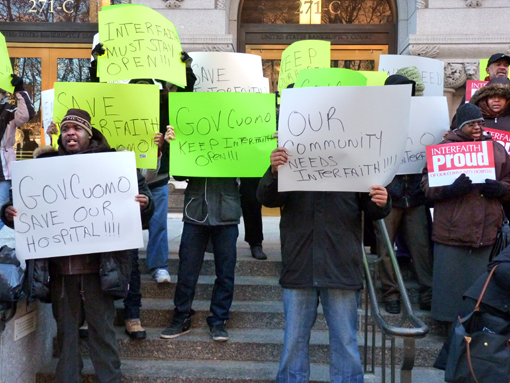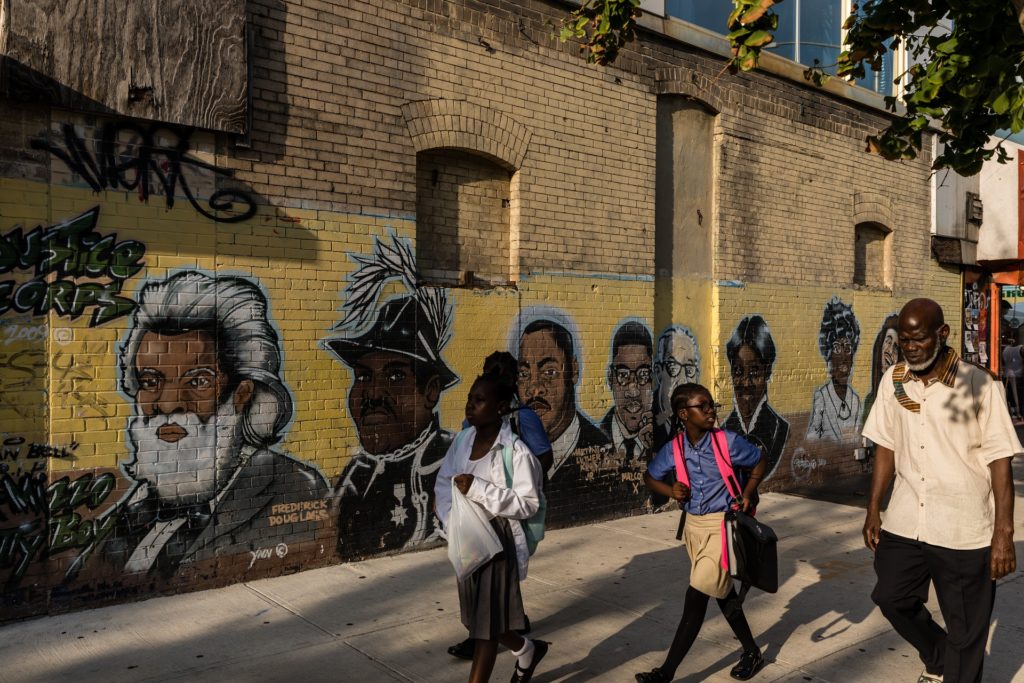Brooklyn judge orders mediation in Interfaith bankruptcy case
Hospital closing still on hold

b_Interfaith_bankrupt3_MFrost_11-13-13c.jpg
Giving a small measure of hope to advocates for Interfaith Medical Center, Chief Bankruptcy Judge Carla E. Craig on Wednesday deferred making a final determination on closing the ailing Central Brooklyn hospital, instead assigning the case to mediation.
The goal is to work out a compromise combining elements of plans submitted by Interfaith supporters, and a closure plan backed by the Dormitory Authority of the State of New York (DASNY) and the state Department of Health.
Judge Craig assigned as mediator Judge Elizabeth Stong, U.S. Bankruptcy Judge for the Eastern District of New York.
